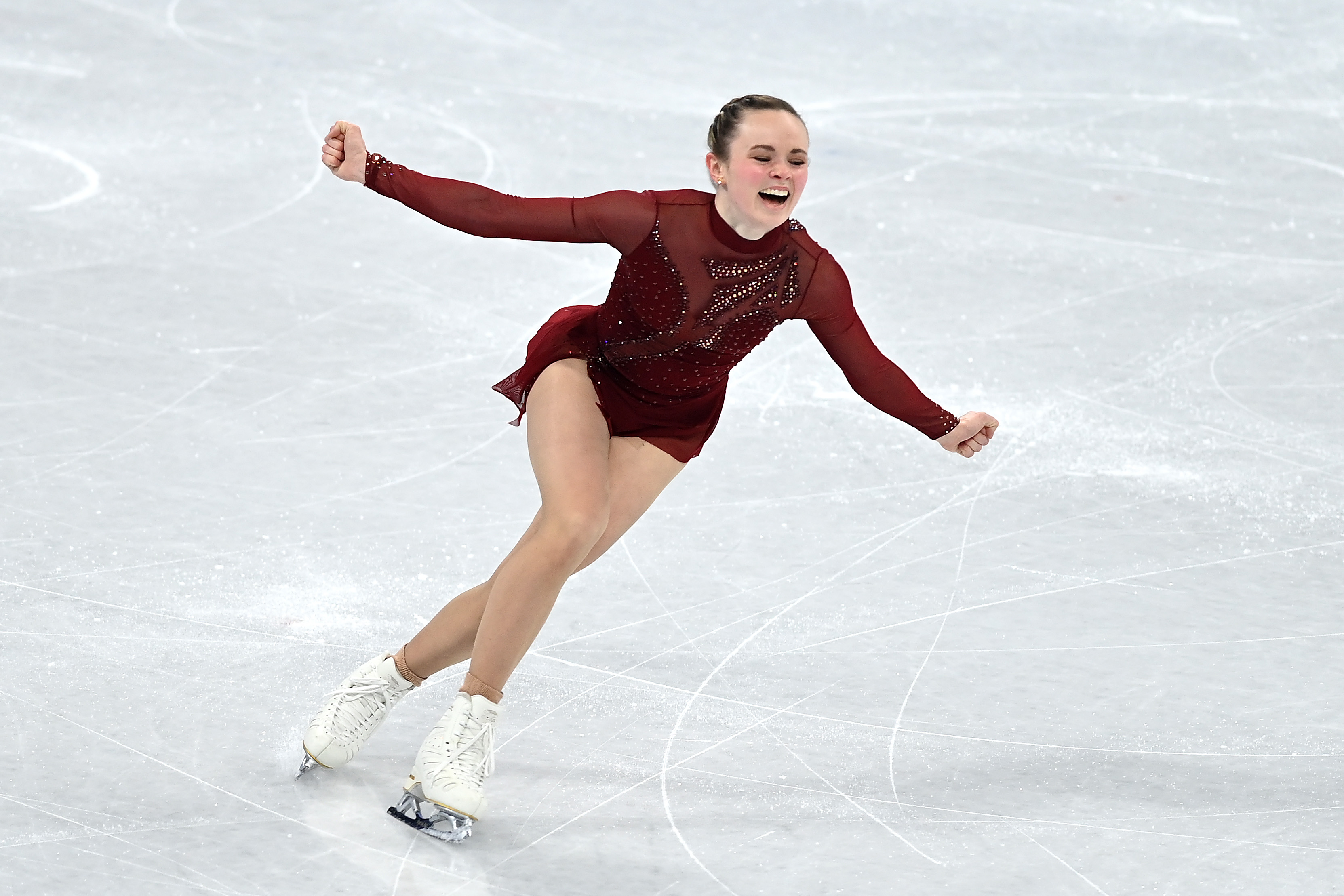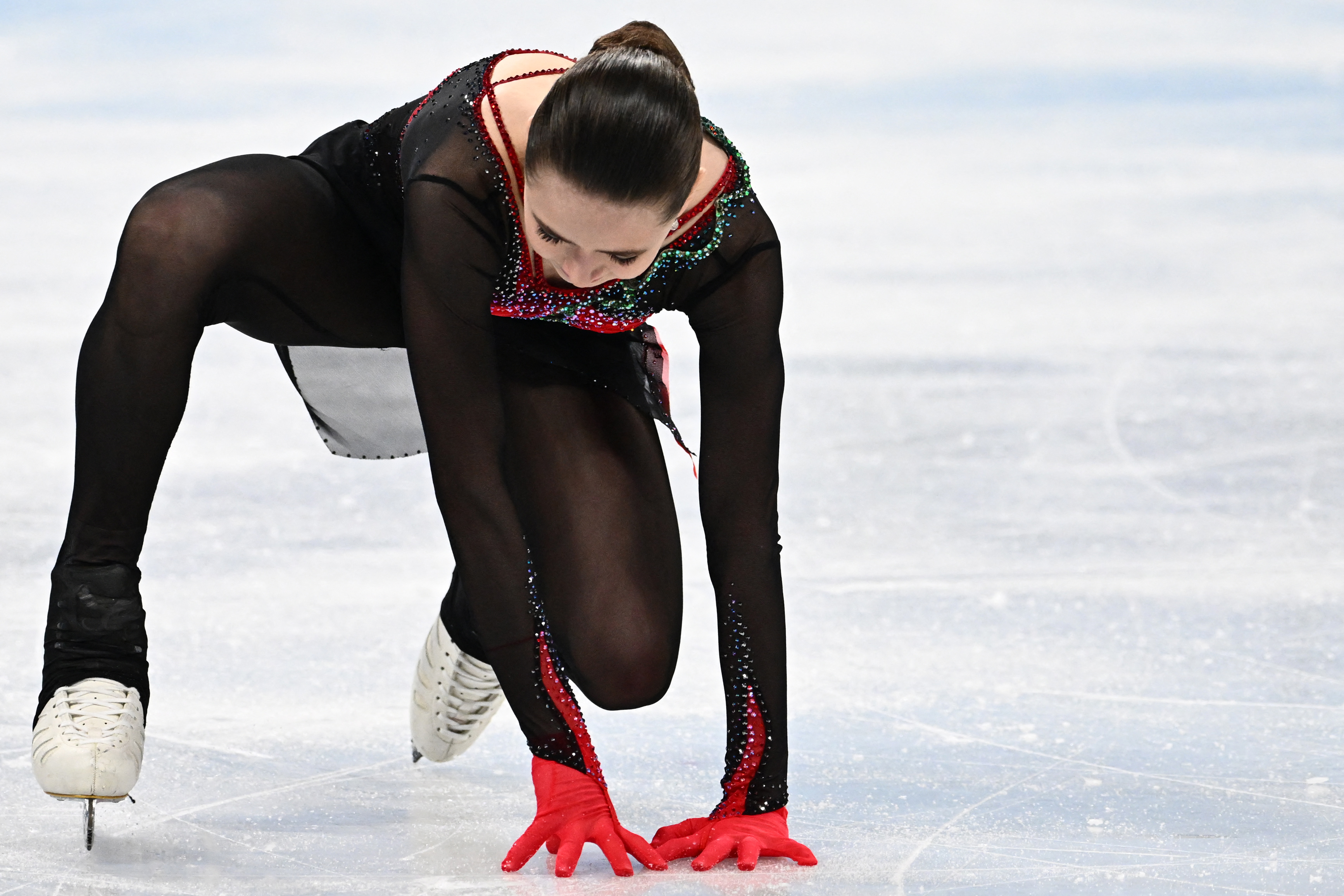The women's individual figure skating event, which had been marred from the beginning by the controversy surrounding Russian teenager Kamila Valieva, capped its finale in dramatic fashion on Thursday at the 2022 Winter Olympics.
Valieva was in first place heading into the free skate, but falls and stumbles shunted her out of contention and her Russian teammate Anna Shcherbakova took first. Russia's Alexandra Trusova placed second and Japanese figure skater Kaori Sakamato claimed third.
After her score was announced, Valieva buried her face in her hands and sobbed in the kiss-and-cry booth.
Get Tri-state area news delivered to your inbox.> Sign up for NBC New York's News Headlines newsletter.
She wasn't the only one.
As cameras followed Valieva behind the curtain, a visibly upset Trusova was captured on live video sobbing and telling her coach, "I can't see this, I won't see this," according to a translation from NBC analyst Johnny Weir.
Trusova's history-making five quadruple jumps weren't enough to earn her the gold and she finished four points behind Shcherbakova in second place. She was heard crying that she was the only one without a gold medal.
Trusova said she was happy with her performance but frustrated by the judges. She shouted at the side of the rink, "I hate this sport. I won't go onto the ice again."
“I am not happy with the result,” said Trusova. “There is no happiness.”
Meanwhile, Shcherbakova stood alone quietly after learning she had taken the gold medal.
"I really don't believe what I'm seeing," Tara Lipinski, another NBC analyst and former Olympian, said as cameras focused on Shcherbakova.
"You win the Olympics and you can't even celebrate," Weir added.
The overlooked world champion delivered a clean performance in her free skate at the Capital Indoor Stadium, landing both of her quads to finish with 255.95 points.
“The importance of this is so huge that I cannot fully understand it yet. At the moment I have only felt the happiness from the fact that I was able to do everything I am capable of in my program,” Shcherbakova said. "I still haven’t realized that the competition has finished and this is the result. I haven’t understood what has happened.”
More Figure Skating Coverage
Third place finisher Sakamoto was also seen crying, though hers appeared to be tears of joy.
“I don't have the big jumps as others would have, which is a big handicap,” said Sakamoto, who doesn't have a four-rotation quad in her arsenal but hit the cleanest triple axel of the Olympics. “That means I had to have perfect elements.”
Valieva's fourth-place finish meant the trio would get a podium ceremony and helped officials avoid what could have been another thorny situation of sending medal athletes home without their hardware. Days earlier, the International Olympic Committee said it would not hold an award presentation after Thursday's competition if Valieva finished in the top three over concerns that she could still be punished if her doping case is later upheld and her medal would have to be returned.
The 15-year-old was heavily favored to win gold but will instead head home with nothing from the women’s program, uncertainty over whether the ROC will keep its gold medal win in the teams event and a looming investigation into her positive drug test.
Valieva's positive test came to light after she had led the Russians to first place in the team skating event last week. Russia's anti-doping agency at first suspended her, then lifted the suspension. That led WADA and the IOC to appeal to the Court of Arbitration for Sport, which determined Valieva could skate in the women's event that began Tuesday.
Because she is 15, she is considered a “protected person” under anti-doping rules and could escape major sanctions. Her coaches and other members of her entourage are subject to automatic investigation and bigger penalties.
Among them is Eteri Tutberidze, the notoriously strict coach behind Russia’s figure skating dynasty. Skaters trained by Tutberidze have dominated competition for eight years, but critics have raised concerns about their short careers — many retire as teenagers — and propensity to suffer serious injuries performing quads.
Cameras captured Tutberidze scolding Valieva after her performance on Thursday, telling the teen, "Why did you let it go? Why did you stop fighting?"
As she tries to recover from a failure on the sport's biggest stage, Valieva still faces an uncertain future in figure skating.
The Associated Press contributed to this report.



